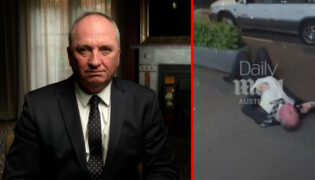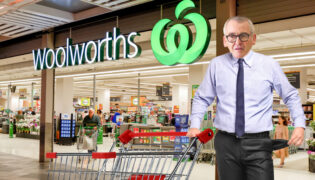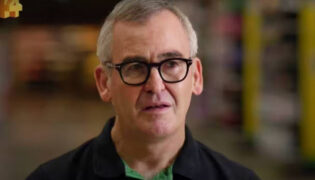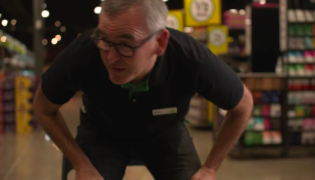 |
[Edition 35] CANBERRA, Sunday: The competition regulator, the Australian Competition and Consumer Commission (ACCC) has struck out at a “cosy cartel” within Australia’s lucrative illegal drugs market, worth an estimated $20 billion annually. The Commission initiated court proceedings against nine Sydney ecstasy dealers cited for restrictive trade practices including price-fixing, illegal market-sharing arrangements and resale price maintenance.

ACCC … products tests were laborious but important |
[Edition 35] CANBERRA, Sunday: The competition regulator, the Australian Competition and Consumer Commission (ACCC) has struck out at what it characterised as a “cosy cartel” within Australia’s lucrative illegal drugs market, worth an estimated $20 billion annually. The Commission initiated court proceedings against 9 Sydney ecstasy dealers cited for restrictive trade practices including price-fixing, illegal market-sharing arrangements and resale price maintenance.
The proceedings are the latest move by the Commission to increase the level of competition in the domestic illegal drugs market, which it characterises as being controlled by “a small number of high-level dealers able to demand high prices for the most in-demand drugs, such as cocaine and ecstasy”. ACCC Deputy Chairman Allan Asher, said today that “the price of illegal drugs in Australia is a damning indictment of market failure – we have seen a systematic failure of competition policy to reach this sector of the economy and consumers are paying the price. I mean, have you tried to buy decent pot recently? It’s outrageous!” The investigation was initiated last December when attempts to obtain high quality, low cost ‘E’s’ and cocaine for the ACCC Christmas party were unsuccessful.
One of the dealers, who spoke on condition of anonymity, said that the charges related to the arrangements whereby dealers were obliged to pursue from a small number of suppliers, who were able to charge higher than reasonable rates because of the lack of competition. These top dealers, believed to bring ecstasy to Australia from countries such as the Netherlands and the UK, were, according to the Commission’s consultant economist, Professor Henry Ergas, “able to price without reference to market pressures … resulting in a situation of sustained and unfair high profits at the expense of the end-user” (ie, the consumer).
Counsel for the dealers did not deny to the court that prices were significantly above cost, but cited the “low barriers to entry” into the market and the widespread availability of ecstasy on the world market through parallel imports from Asia and the US that subjected them to competitive pressure and argued that there was no need for the Court to intervene. Besides, argued the lawyers, “we just feel that the argument by Allan [Professor Allen Fels, Chairman of the Commission] and his guys is really, really not right … but, we’d love to talk to them about it, and maybe, like, just hang out at the court until we’re all on a particular wavelength, and then, like, go for it, man.”
At a preliminary hearing, Justice Flohm of the Federal Court upheld the allegations, setting a hearing date for mid-April. The Court declined to uphold other charges relating to false and misleading advertising, rejecting the Commission’s charge that claims by dealers that ecstasy was “fun” and “relatively harmless” constituted misleading and deceptive conduct as “self-evidently untrue”. However, after a gruelling 8-hour session of cross-examination, His Honour said that “when I consider the ‘wicked banging tunes’ tendered in evidence by the defence, taken together with an oral examination of some of the physical evidence, I am minded to uphold the misleading and deceptive conduct claims relating to the use of the terms ‘cheap’, ‘affordable’ and ‘won’t make you dance a bit like a spastic’.”
Speaking at a press conference held later that morning, Professor Fels said today that the Commission was “very pleased” with the outcome of the hearing. “You only have to consider that ecstasy costs as little as £5 in London, or F50 in Paris, to realise that consumers in Australia are being ripped off”, he told reporters. “Besides, the underlying economics of the industry make it worthy of study in and of itself. The illegal drugs market is characterised by a loose aggregation of vertical and horizontal arrangements, with admittedly limited economies of scale, but strong economies of scope, particularly in the delivery and distribution parts of the supply chain. We found that the investigative phase of this case threw up evidence of a consistent and underlying pattern of market failure, previously undescribed in the antitrust literature, that piqued our interest. And” he ended sheepishly, “some pretty good pills”.
He said that the Commission would continue to vigorously examine opportunities to apply the Trade Practices Act to all parts of the Australian economy, notwithstanding the illegality or otherwise of that conduct. The Commission was involved in a controversial settlement reached between rival bikie gangs, The Comancheros and the Coffin-Cheaters, last year, in which the gangs made undertakings not to engage in restrictive membership practices and to refrain from restrictive arrangements such as “no go zones” and beating one another to death, for a period of 12 months.






